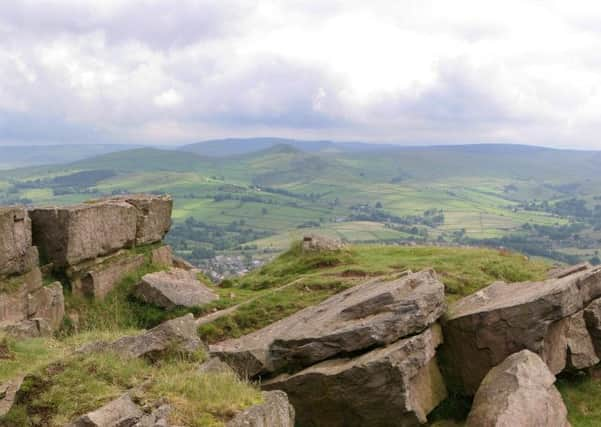Comment: Time is ripe for better rural policy


Yet last week I found myself desperately wanting to escape to the nearest urban conurbation, and all the noise and frantic activity I’d find there. Having just spent a relaxing week’s holiday in Derbyshire, I was looking forward to driving through some of the Peak District National Park on the way home.
Looking for once through the eyes of a tourist, I was saddened by what was a dismal view. Miles of collapsed dry stone walls, fields that could only be described as the roughest of grazing and a fair few farms up for sale.
Advertisement
Hide AdAdvertisement
Hide AdThere was the occasional oasis of well managed land where the buildings and machinery suggested steady investment, but on the whole the outlook was bleak. Not just describing the view, but worryingly also perhaps the future of our uplands and more remote areas.
Large sections of farming are entering exciting times. For the first time in years, the number of young people joining the industry is increasing. Biotechnological advances are revolutionising production systems that were unchanged in generations. So why aren’t rural communities buzzing?
There’s still a huge amount of unlocked potential in our countryside. Not only food but building materials, renewable energy and tourism to mention just a few, all contributing towards an industry that generates a quarter of our country’s economic output. And yet most of the focus in the North appears to be on the development of cities.
For centuries our countryside has evolved under the stewardship of farmers and land managers. But now, when there are more demands on land use and more mouths to feed, some people and organisations want to hit the stop button. They appear well-meaning and are undoubtedly concerned that their views will be spoiled. That is however their sole measure of judging the countryside - by how it looks. The countryside is more than a view but ironically, by trying to preserve it in aspic, the self-appointed ‘protectors’ are condemning our rural areas to a slow and painful decline into obscurity.
Advertisement
Hide AdAdvertisement
Hide AdThe Yorkshire Post highlighted last week the damage that the loss of vital amenities and services such as shops, schools and public transport is causing. Large swathes of our countryside are already dying, and yet we won’t allow the self-help treatment to be applied. We’re effectively cleansing rural areas of working, economically productive and socially contributing people. Not just the youngsters but the next generation up, who work, buy houses and fill local schools.
We mustn’t be disadvantaged because of urban-focused legislation. Of course it’s more expensive to deliver effective broadband to rural areas but the economic and social benefits it would bring are at least as great as those in urban areas. And if policy makers understood the social, environmental and economic interactions within thriving rural communities the whole nation could benefit.
It’s unlikely the countryside will go back to the days of huge tracts of abandoned land as it was between the wars, but there’s a real risk of having pockets of land where nobody wants to live, earn a living or even visit. We mustn’t allow that to happen on our watch.
Douglas Chalmers is director of policy and public affairs at the Country Land and Business Association in the North.